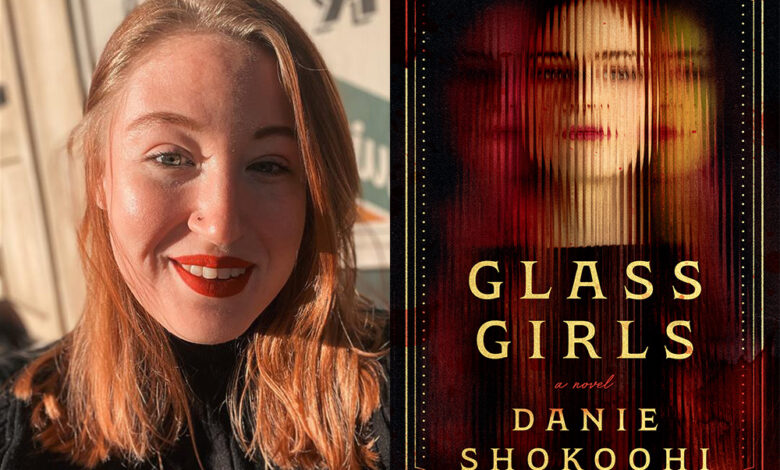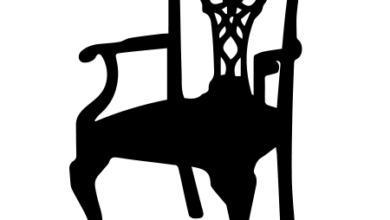Q&A: Danie Shokoohi, Author of ‘Glass Girls’

We chat with author Danie Shokoohi about Glass Girls, which follows a former child medium who is called home to help protect her niece from possession, forcing a reckoning with the traumas of her past and the magic she left behind.
Hi, Danie! Can you tell our readers a bit about yourself?
Hello hello! I’m a writer and certified language nerd (I’m learning my fourth!). I grew up in Michigan with my Iranian mother, but I currently live in Paris with my Moroccan partner. I’m an avid tarot reader, and my main hobby is making decks based off my own photography. I’m also a walking advertisement for making too many Spotify playlists, and I fall asleep listening to horror drama podcasts.
When did you first discover your love for writing and stories?
It’s really hard to pinpoint a moment because I’ve always loved story as a form of connection. But I think the first moment I realized that I could create them myself was when I was in second grade. My handwriting was absolutely atrocious and my mother decided that the best way to improve it would be to have me write a page a day after school to practice. I got bored of writing the same sentences over and over again, so I started writing myself stories to keep myself from getting bored. I never stopped.
Quick lightning round! Tell us:
- The first book you ever remember reading: A collected anthology of Disney stories—I was very attached to fox Robin Hood as a child.
- The one that made you want to become an author: This is all: The Pillowbook of Cordelia Kenn by Aiden Chambers
- The one that you can’t stop thinking about: The Cloisters by Katy Hayes
Your debut novel, Glass Girls, is out June 24th! If you could only describe it in five words, what would they be?
Generational trauma, but it’s ghosts!
What can readers expect?
Glass Girls is a love letter to sibling relationships; it’s an ode to Cleveland, Ohio; and it’s a declaration of bodily autonomy in a post-Roe world where the rights to one’s own body are being systematically carved away—so there’s a lot of reflection and who earns the right to make decisions about our bodies. There’s also quite a bit of haunting Midwest settings, anti-February propaganda, lots of witchcraft, and séance attire.
Where did the inspiration for Glass Girls come from?
Alice appeared to me in the middle of a perfect storm of ideas. At the time, I was doing research for a different (since then, shelved) book idea that had to deal with witchcraft. I was reading a book about the Duke Parapsychology clinic and came across a story about a child medium who had stepped away from the spiritualist world at 18 and refused to speak to ghosts for the rest of her adult life. I found myself obsessing over that decision and chewing on what it would take to make someone turn away from the world as they knew it, to turn their back on that kind of gift. At the same time, I was unpacking my own generational trauma in therapy, and had just received a formal diagnosis of bipolar disorder, which has a very strong genetic component. I was grappling with what it would mean to start a family, knowing there was a risk that I would pass my illness to my children. In the middle of all that processing, I got the clearest vision of this anxious redhead standing in the aisle of a bougie grocery store, agonizing over dinner ingredients, while this bedraggled woman watched her from the end of the aisle. That image electrified me, and it eventually became chapter one.
Were there any moments or characters you really enjoyed writing or exploring?
Alice’s sister, Bronwyn Glass, was the radiant light of the book for me. She’s such a multi-faceted character—ferociously loyal and deeply sensitive, but extremely uncomfortable with big displays of emotion. Sarcastic, funny, vaguely threatening, and yet vehemently committed to her own healing. Anytime Bronwyn was in a scene, I knew she’d direct the dialogue exactly where it needed to go.
Did you face any challenges whilst writing? How did you overcome them?
With Glass Girls, I really grappled with the question of access to Alice’s trauma in the past timeline. How do you tell a story the main character does not want to touch? How do you force a character to confront something they pretend doesn’t exist? How do you put to words the most indescribably awful thing that’s ever happened to someone?
The answer I came to was—you don’t. I am a subscriber to the belief that the body keeps a chemical record of trauma. It alters our brain chemistry, damages our language center, steals the vocabulary to describe itself. Couple this with a deep avoidance of the past and an upbringing that demands you to perform perfection in exchange for safety, and you’re left with someone like Alice, whose survival mechanism is silence. As a writer, this eliminates flashbacks. So what’s left? You don’t jump into their past; you document the things that slip through their defenses, the stories they tell themselves to justify their survival.
This is your debut novel! What was the road to becoming a published author like for you?
I’d say that it was a kind of pilgrimage. I feel like it’s deeply uncool to say, but for a very long time, writing was my entire personality. During my MFA applications in 2017, I was between jobs and I spent about 12 hours a day writing, reading writing craft books, and reworking my application materials. When I graduated from University of Wisconsin-Madison, in 2020, I ended up falling into the same kind of pattern with Glass Girls. The document was pretty much constantly open on my laptop, with a permanent tab open in the back of my brain. Becoming a published author felt both like a miracle and this whoosh of relief of finally being able to close Alice’s tab and open some new ones.
What’s next for you?
My brain is constantly in motion, so I can tell you I have quite a few projects simmering on the stove. The novel I’m working on now is very different than Glass Girls; the protagonist is very sharp, very dark, very sarcastic, but equally traumatized. Without spilling too many beans, you can expect physically-manifesting dream figures and swarms of violent blackbirds.
Lastly, what books have you enjoyed reading this year? Are there any you’re looking forward to picking up?
A few weeks ago, on its release day, I absolutely devoured Starving Saints by Caitlin Starling. It’s exquisitely dark with sapphic yearning/vengeance, chivalry and cannibalism. I cannot get the images out of my mind—it was similar with The Death of Jane Lawrence. She’s one of those writers whose stories just lives under your skin. I also have The Bog Wife by Kay Christopher and Eat the Ones You Love by Sarah Maria Griffin waiting in my suitcase now for when I fly back to the States in a few days.
Will you be picking up Glass Girls? Tell us in the comments below!
Source link

